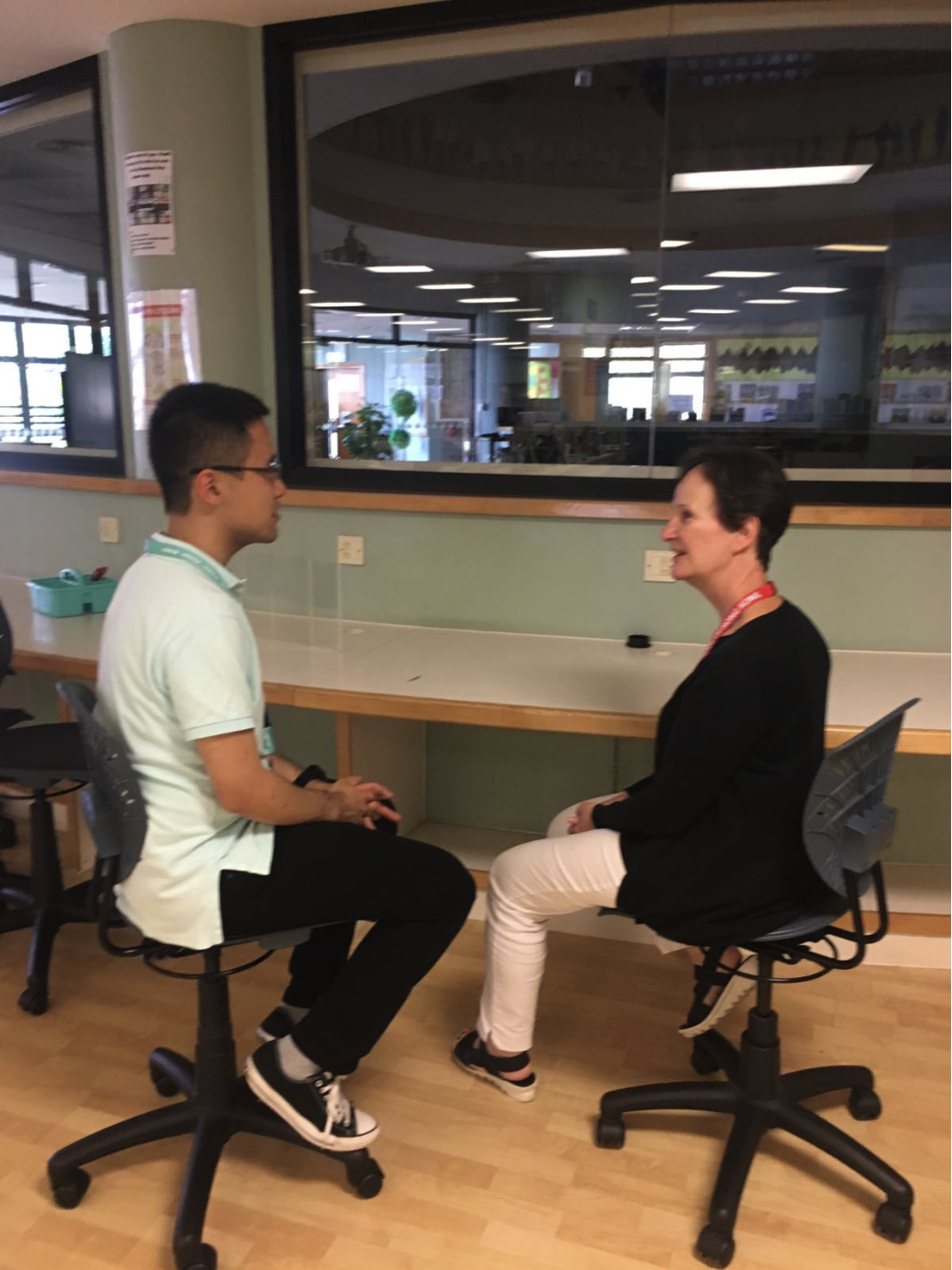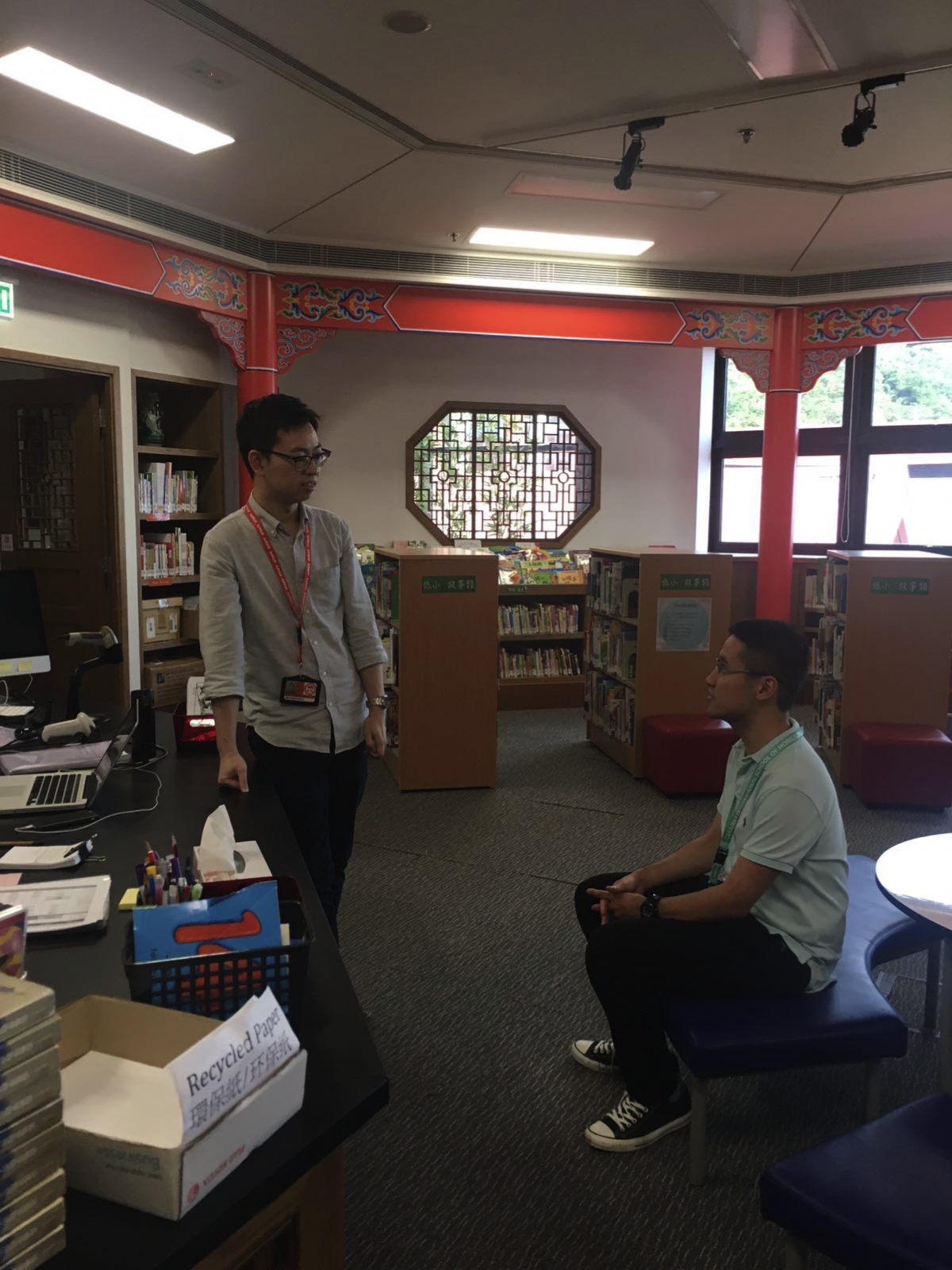Benjamin sits down for a conversation with Teacher-Librarian Myrna Holm
Text by: Isabella and Benjamin
Overall experience
Isabella: After an invitation from one of the HKLC coordinators, I was honoured to take part in this program as a mentor. Being a mentor is to demonstrate the knowledge sharing and provision of guidance or advice related to work, career or professional development (Bozeman & Feeney, 2007). Before attending the activities, I feel like this job is huge and challenging and I should take responsibility and try to fulfill the goals of this program. After joining few of the activities, I feel more relaxed and blessed to meet some new people who are working in the library field or studying the library programs. I have had several great evenings with them and learnt a lot.
Benjamin: I was extremely delighted to join this HKLC program as a mentee. It is my pleasure to meet Isabella and other HKLC contributors. I have learnt a lot from their working, studying and social experience. During this program, I can understand more about socialization, which refers to tacit knowledge shared among people, and the new knowledge that is created through the process of interactions, observing, discussing, analyzing, spending time together or living in the same environment (Dalkir, 2011, p. 66). For instance, Isabella has shared her working experience from an international school library perspective, such as, acquisition, cataloguing, circulation, reading promotion, stock-taking, etc. In particular, I have learnt that Destiny is an excellent library management system for the aforementioned tasks. Furthermore, I have shared my working experience from public library, school libraries and academic libraries with Isabella. It demonstrates that we have shared and exchanged our working experience (tacit knowledge) during this program.
Highlights of the program
Benjamin visited the Chinese Library and met Chinese Librarian Joe Kwok
- Art + Feminism Wikipedia edit-a-thon
Isabella and Benjamin: This is the very first time for us to edit Wikipedia. We helped to add references to various Wikipedia posts, especially the article about the Asia Art Archive. Working in a team to make even a small contribution was so much fun. We have explored and found out ways to complete our edits.
- Card games
Isabella and Benjamin: Fibbage and Search&Destroy are two amazing games we played at one of our meetings. Fibbage is an entertaining game which we need to come up with convincing lies to fool our opponents. Search&Destroy is an interesting card game created by librarians to teach different database search skills, for example, basic search, advanced search, etc. We have fun together when we played these two games together.
- Data Studio
Benjamin: It was an unforgettable experience to visit Data Studio with other HKLC contributors. Data Studio is located in Hong Kong Science Park. It is a big data collection and creation centre. It collects data about transportation, FinTech and medical for economic and social values in Hong Kong. I have learnt more about the application and development of big data in Hong Kong.
Gains from the program
Dinner time together!
- Sharing of working experience: We work in different library sectors and we have encountered different library matters. There are so much interesting things to be shared about our school and public libraries.
- Support and guidance: It is a great opportunity to support and guide on how to develop and improve different library services, especially library promotion, career development and social issues.
- Friendship: We were extremely happy to learn that we share the same religious beliefs, through which we can understand more about our situation. We can encourage each other to think positively when we face any difficulties from family situations or working condition.
References
Bozeman, B. & Feeney, M. (2007). Towards a useful theory of mentoring: A conceptual analysis and critique. Administration & Society, 39(6), 719-739.
Dalkir, K. (2011). Knowledge management models. In Knowledge management in theory and practice (pp. 59-96). London, England: The MIT Press.



